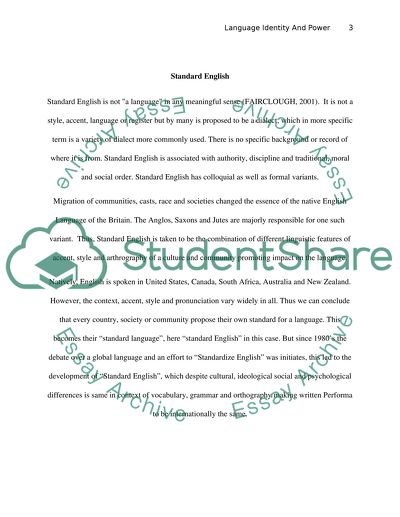Cite this document
(“LANGUAGE, POWER & IDENTITY Essay Example | Topics and Well Written Essays - 1500 words - 3”, n.d.)
LANGUAGE, POWER & IDENTITY Essay Example | Topics and Well Written Essays - 1500 words - 3. Retrieved from https://studentshare.org/english/1620529-language-power-identity
LANGUAGE, POWER & IDENTITY Essay Example | Topics and Well Written Essays - 1500 words - 3. Retrieved from https://studentshare.org/english/1620529-language-power-identity
(LANGUAGE, POWER & IDENTITY Essay Example | Topics and Well Written Essays - 1500 Words - 3)
LANGUAGE, POWER & IDENTITY Essay Example | Topics and Well Written Essays - 1500 Words - 3. https://studentshare.org/english/1620529-language-power-identity.
LANGUAGE, POWER & IDENTITY Essay Example | Topics and Well Written Essays - 1500 Words - 3. https://studentshare.org/english/1620529-language-power-identity.
“LANGUAGE, POWER & IDENTITY Essay Example | Topics and Well Written Essays - 1500 Words - 3”, n.d. https://studentshare.org/english/1620529-language-power-identity.


